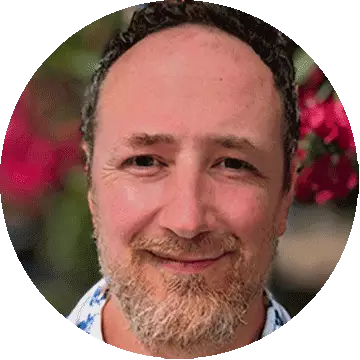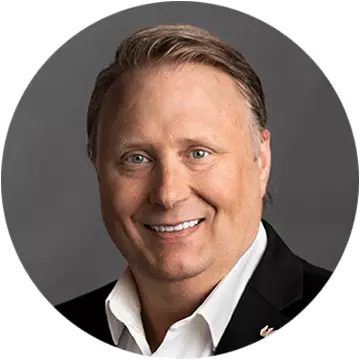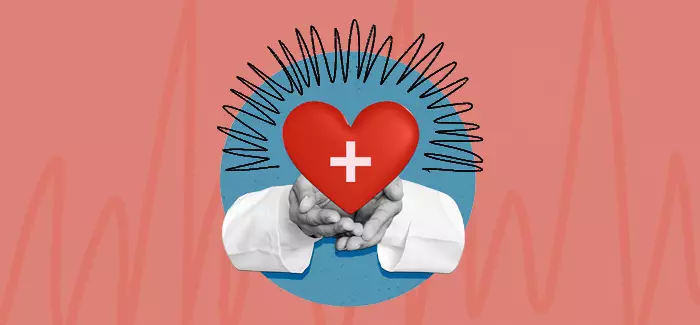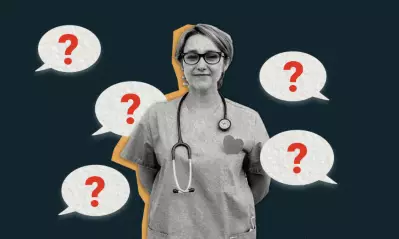Articles > Healthcare¬Ý>¬ÝWhat is a health education specialist?
What is a health education specialist?

Written by Dillon Price

Reviewed by¬ÝMark J√≥hannsson, DHSc, MPH,¬ÝDean, College of Health Professions

When careers in public health come to mind, we might picture doctors and nurses on the front lines of care. But there’s another side of the health field that blends education, prevention and community well-being with strategy to help individuals and populations lead healthier lives.
What does a health education specialist role look like?
Health education specialists focus on helping people lead healthier lives. They work to educate individuals and communities about habits and choices that support well-being. In addition to teaching, this role involves listening, researching and finding ways to improve public health through meaningful programs and outreach.
The typical day-to-day duties of this role include:
- Identifying through assessments and outreach what health issues affect individuals and communities
- Designing and delivering educational content, workshops or events on key health concerns
- Measuring how well programs and materials are working
- Helping people understand healthcare systems and connecting them with services or support
- Offering training to health workers or related professionals to spread accurate health knowledge
- Leading teams that carry out public health initiatives and ensuring everything runs smoothly
- Using research and community data to guide strategies and advocate for better health policies
Where does this role exist?
According to the (BLS), as of 2023, around 62,100 people were employed in this role. The majority worked for government agencies (27%), followed by outpatient care (18%), hospitals (17%), social assistance programs (9%), and finance and insurance companies (5%). While many of these positions are based in offices, they also involve fieldwork. That could mean running community programs, leading workshops or meeting with partners.
People employed in this role might work across a variety of settings. In healthcare facilities, they provide one-on-one guidance to patients and families to help them understand diagnoses and treatment options, while also organizing community health efforts such as blood pressure screenings or safety workshops.
In nonprofit organizations, they may create health education materials, seek funding through grants and advocate for public health improvements. Within public health departments, they may lead campaigns on immunizations and emergency preparedness, collaborate on policy development and manage grant-funded programs.
In workplace settings, they may also design wellness initiatives, encourage healthy habits among employees and recommend changes (e.g., smoke-free zones) to support healthier environments.
This role is typically full time, but schedules can include evenings and weekends, especially when attending events or engaging with the public outside of regular business hours.
How is a health education specialist different from a health educator?
While these roles might be confused, there are a few key differences.
For example, a public health educator might focus on teaching people how to prevent illness and live healthier lives. They might also lead community workshops, provide one-on-one support or design outreach programs that help individuals understand their options for health and social services.
Some specialists choose to take an exam to become certified; this is referred to as CHES-certified.
Health education specialists combine direct education and outreach with strategic planning, program evaluation and policy advocacy to improve population-wide health outcomes.
What education does a health education specialist role require?
To qualify for this role, candidates typically start by earning a bachelor’s degree in health education, health promotion or a related field, such as public health, social science, business or another healthcare field. Candidates may also get hands-on experience through internships, which allows them to apply what they’ve learned in real-world settings.
While a bachelor’s degree is the typical entry point, some roles in this field require graduate-level education. Earning a master’s degree, such as a Master of Public Health with a concentration in Community Health Leadership (MPH/CHL), can deepen a candidate’s knowledge for a role as a health education specialist.
Students enrolled in an MPH program can gain a strong foundation in public health principles and leadership skills through a mix of core coursework, specialized classes and field experience. While a bachelor‚Äôs degree is required to enroll in an MPH program, candidates don‚Äôt typically need a specific major as a prerequisite.¬Ý
What skills and qualities does a health education specialist need?
These specialists need a blend of technical knowledge and people-centered skills to effectively promote wellness and support community health efforts. These skills and characteristics include:
- Analytical skills: This role requires the ability to gather and evaluate health data to identify the specific needs of populations.
- Communication: Communication is key to share health information clearly through educational materials, presentations and written proposals for programs or funding.
- Teaching and instruction: Candidates should be prepared to design and teach workshops and health classes, as well as guide discussions with individuals, families and community groups.
- People skills: This role requires the ability to connect with diverse populations, listen and respond with empathy to concerns and cultural needs.
- Problem-solving: Candidates should think creatively to improve public health and overcome challenges such as limited budgets or community pushback.
What code of ethics does this field require?
Health education specialists are held to high ethical standards. Their role involves building trust, honoring human dignity and promoting health equity across all communities. Their work requires a commitment to professional integrity, cultural inclusivity and respect for every individual they serve. These ethical standards are a must-have for anyone working in community or public health.
Upholding ethical behavior in every setting
This role requires candidates to lead by example. That means modeling honesty, fairness and respect in a classroom, with a community or while advising a patient. They must avoid discriminatory, abusive or exploitative conduct and create safe, inclusive environments for all.
Ethics also calls for transparency. Health education specialists must accurately represent their training, credentials and professional capabilities. When a situation goes beyond their scope, they should refer their clients to qualified professionals rather than guessing or overstepping.
Confidentiality is another key ethical practice. To help build trust, people in this role are expected to respect privacy and boundaries of individuals. They should also recognize and honor differences in beliefs, values and perspectives. If they witness unethical behavior, they are responsible for reporting it to the proper authorities or organizations.
Serving the public through equity and advocacy
Ethical practice also means putting the public’s well-being first. When faced with conflicts between individuals, institutions or interests, health education specialists should focus on beneficial outcomes without compromising an individual’s right to make informed decisions.
This work also demands ongoing collaboration with communities to ensure that people are active participants in shaping the initiatives meant to serve them. To remain effective, those working in this role should stay current, refine their skills through continuing education, adapt to new research and contribute to the evolution of the field through mentorship, innovation and professional engagement.
Acting with integrity in professional practice
Professionals in this field are expected to base their work on sound evidence and proven theories. They should present information honestly and without bias or distortion. Data must be reported clearly, and credit must be given to collaborators and contributors.
Health education specialists should avoid conflicts of interest that could influence their decisions. That also means transparency in research, partnerships or professional relationships.
Lastly, they should never compromise ethical standards for convenience. This includes avoiding plagiarism, obtaining informed consent in research, respecting participants’ rights and making findings accessible for the betterment of public health.
What is the job growth and pay for this role?¬Ý
projects health education specialist employment to grow faster than the average for all occupations from 2023 to 2033. The forecast is for 7% growth, or an average of 6,700 job openings each year over the decade.
As of May 2024, health education specialists earned between $42,210 and $112,900, with a median wage of $63,000, according to .
BLS Occupational Employment Projections, 2023-2033 is published by the U.S. Bureau of Labor Statistics. This data reflects BLS‚Äô projections of national (not local) conditions. These data points are not specific to ∆þ…´ ”∆µ students or graduates.
Salary ranges are not specific to students or graduates of ∆þ…´ ”∆µ. Actual outcomes vary based on multiple factors, including prior work experience, geographic location and other factors specific to the individual. ∆þ…´ ”∆µ does not guarantee employment, salary level or career advancement. BLS data is geographically based. Information for a specific state/city can be researched on the BLS website.
Learn about degree programs for health education specialists
Does becoming a health education specialist interest you? ∆þ…´ ”∆µ offers a Master of Public Health with a concentration in Community Health Leadership (MPH/CHL) that teaches core skills such as evidence-based methods, program planning, epidemiological practices and more.
To learn more about this program, reach out to UOPX to request information.

ABOUT THE AUTHOR
Dillon Price is a detail-oriented writer with a background in legal and career-focused content. He has written and edited blogs for dozens of law firms, as well as Law.com. Additionally, he wrote numerous career advice articles for Monster.com during the company‚Äôs recent rebranding. Dillon lives in Western Massachusetts and stays in Portugal each summer with his family.¬Ý

ABOUT THE REVIEWER
Mark J√≥hannsson is the Dean of the¬Ý College of Health Professions. He has a career spanning over 35 years of healthcare management, public health practice, higher education administration, teaching and clinical/behavioral research within corporate, community and academic settings. He has served as both an educational and keynote speaker, and he has been published in a variety of peer-reviewed and periodic literature.
This article has been vetted by ∆þ…´ ”∆µ's editorial advisory committee.¬Ý
Read more about our editorial process.

